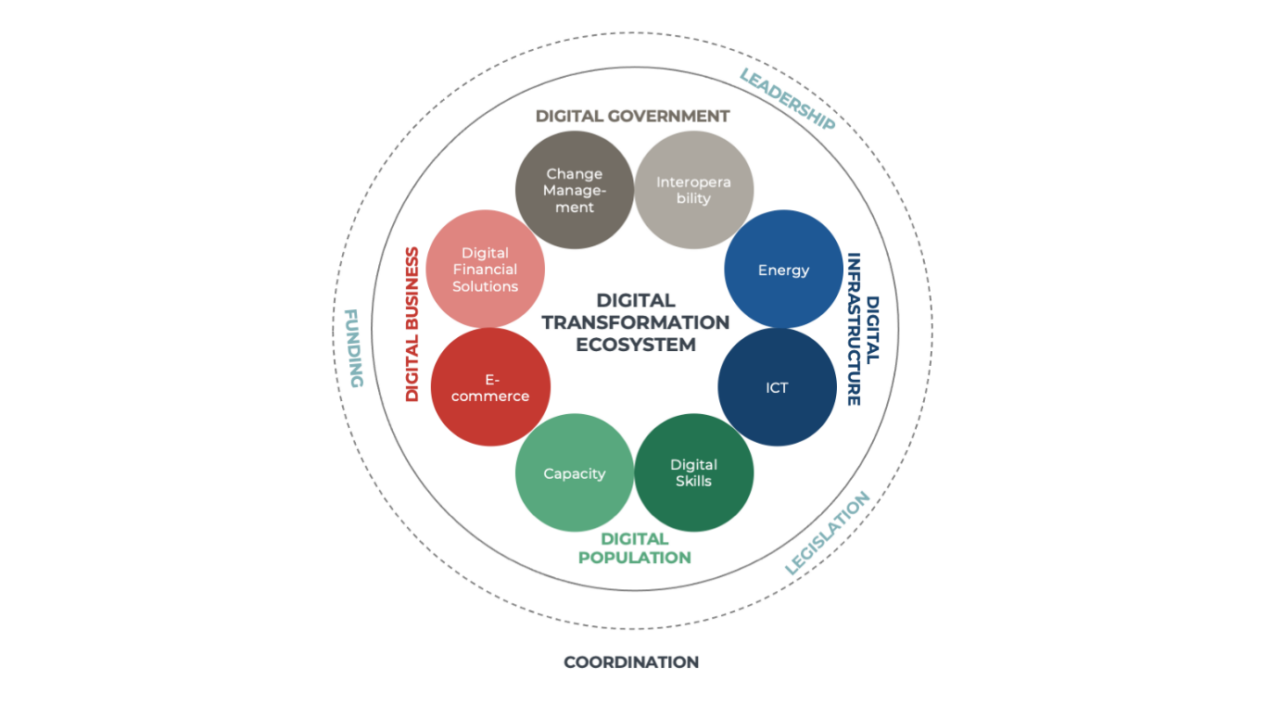
Formulating Lesotho’s National Digital Transformation Strategy
Lesotho’s digital economy holds immense potential for national development. Lesotho has made good progress in implementing a number of digital transformation initiatives, including the national digital ID, near-complete 2G and 3G network expansion, and initial steps toward developing a national payments switch.
However, the economy’s suboptimal digital transformation ecosystem results in many digital initiatives being underused. It is evident that digital transformation offers Lesotho a significant opportunity to realise the ambitious goals set in its second National Strategic Development Plan (NSDP II) and will become increasingly important in subsequent development plans. However, operationalising this transformation demands the development of an appropriate strategy.
Genesis Analytics partnered with Digital Pathways from the Blavatnik School of Government at Oxford University and the Prime Minister’s Delivery Unit within the Government of Lesotho to produce a National Digital Transformation Strategy. Drawing on our experience in developing similar strategies for other countries, Genesis worked with the government, private sector and civil society to determine the key opportunities for digital transformation to support the realisation of Lesotho’s development objectives set out in NSDP II.
The approach undertaken by Genesis centred on ensuring the strategy’s practical relevance in Lesotho, and stimulating improved conversations, better planning and ultimately better outcomes among responsible stakeholders to secure the longevity of the strategic interventions recommended in the strategy. Three phases were defined to support the development of the strategy:
- Digital opportunity and readiness assessment which provided a baseline diagnostic for digital transformation in Lesotho, outlining key opportunities and constraints to achieve them;
- Multi-stakeholder dialogues across government, private and development sectors to identify how to close the readiness gaps identified in the readiness assessment; and
- Validation discussions with key stakeholders to confirm insights gathered throughout the consultations to input actionable recommendations for the strategy primer.
The process was guided by a national steering committee, located within the Prime Minister’s Office, thereby signifying the strategic importance of this project.
Through interactions with various stakeholders, the Genesis team was able to develop a framework (see below) that describes an enabling environment to support the National Digital Transformation Strategy for Lesotho.

Digitisation processes are complicated because many stakeholders are involved, and because there are so many factors that contribute to, or detract from, the impact of digital transformation.
To create an enabling environment for the digitisation process in Lesotho, the framework identifies four key areas that need to be driven by government, but which also need to engage a wide base of stakeholders, including civil society, private business, non-governmental organisations and multi-national organisations, development partners and other funding agencies. The four focus areas are digital government, digital infrastructure, digital population and digital business.
Critical to the successful development of these four key focus areas are the coordination of stakeholders, through strong leadership, dedicated funding in support of the strategy implementation plan, and legislation and policy development in support of the digitisation process. Each of the four areas has two priorities that need to be addressed. These are elaborated in the strategy document.
Our recommendations were presented to the steering committee and have been welcomed with minor modifications. Critically, the steering committee recommended the establishment of a national council comprising senior representatives of government and private sector to provide broad oversight. This council would be convened by the Prime Minister.